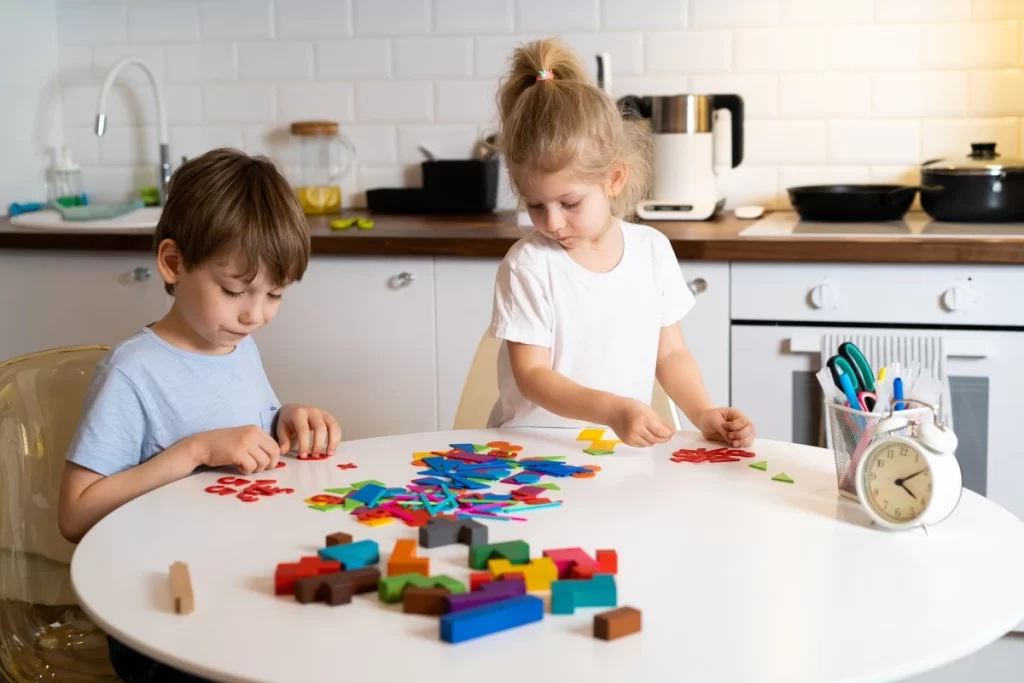Definition of Dysgraphia
Dysgraphia is a learning difficulty that impacts an individual’s writing ability. This difficulty manifests in various ways, making it a unique challenge for each individual, and often becomes apparent in children when they are first introduced to writing.
Dysgraphia can be broadly categorised into two main areas: motor and cognitive challenges.
Motor challenges include:
- Difficulty in forming letters
- Maintaining consistent letter size and spacing
- Holding a pencil correctly
- Experiencing physical discomfort while writing
Cognitive challenges include:
- Struggling with spelling, grammar, and punctuation
- Difficulty in understanding sentence structures
- Challenges in effectively organising thoughts on paper
Some children may experience motor or cognitive difficulties, while others may face both.
Dysgraphia can affect a student’s academic performance. However, there are strategies and accommodations that can assist individuals. These include audio recorders, teaching touch-typing, and occupational therapy. Additionally, extended time for writing assignments and specialised writing tools can help individuals. Treatment and management strategies will vary depending on the individual’s specific needs.
Strategies to Help a Child with Dysgraphia
Children with dysgraphia may face emotional distress due to their writing challenges, so offering understanding and encouragement is crucial. Supporting a child with dysgraphia involves a combination of strategies and accommodations to help them overcome the challenges associated with writing. Support from a child’s teacher and a medical professional is essential for proper evaluation and access to services so children with dysgraphia can excel academically and gain confidence in expressing their ideas.
Talk to Your Child About It
Engaging in open and supportive communication is crucial to help children overcome their challenges. Working together to evaluate and adapt writing goals as needed and brainstorming ideas before writing can be integral components of supporting a child with dysgraphia on their writing journey.
Practice Writing Big Letters
Therapists often use techniques that involve large motor movements and multisensory materials to improve the learning experience. At home, parents can engage children in activities, such as writing big letters with bright colours, that make writing more engaging and memorable. Such activities promote better retention of letter shapes and formations, which can be especially beneficial for a child with dysgraphia.
Practice Pinching to Strengthen Fingers
Practising pinching motions to strengthen finger muscles can benefit children with writing difficulties, particularly those with difficulty correctly holding a pencil. Improving their “pencil grip” can significantly improve their writing skills. A child can develop finger strength and coordination using everyday items around the house. Among the proposed activities is to engage a child in a fun game by throwing small objects and to challenge a child to pick up as many small objects as possible using a pinching tool within a minute. This activity strengthens their fingers and makes the process enjoyable and engaging.
Make Audio-Recordings
Writing requires attention and legibility, which can be particularly challenging for individuals with dysgraphia. An effective option is creating audio recordings of discussions or lessons, especially when note-taking is involved. For individuals with dysgraphia, listening to the content without the added pressure of taking extensive notes can improve comprehension and retention. Speech-to-text technology can also be a valuable tool for converting spoken words into written text. These strategies not only ease the challenges of dysgraphia but also promote more inclusive learning environments where students can prosper.
Type on a Computer Keyboard
While traditional handwriting tools remain important, keyboard typing offers an alternative means for your child to express their ideas and think creatively without the difficulty of handwriting. Keyboarding programs can provide tailored support for children, offering a structured approach to learning this valuable skill. These resources can help a child become proficient in keyboarding, reducing the frustration associated with handwriting and allowing them to make more significant progress in various subjects.
Spelling Out Loud
Spelling difficulties often accompany dysgraphia, as it impacts the process of translating words into their component letters, known as orthographic encoding. Reciting spellings out loud can be an effective strategy to overcome this challenge. Dysgraphia doesn’t typically affect verbal communication, so individuals can complete spelling quizzes verbally or silently recite a word’s spelling to themselves before attempting to write it down. This approach reinforces their understanding of spelling and promotes better retention.
Additionally, learning touch-typing can be helpful, as the repetition and muscle memory involved in typing words can help in mastering spelling through tactile feedback, strengthening the connection between spoken and written words and mitigating the impact of dysgraphia on spelling skills.
Get Help From a Trained Support Worker
Getting help from a trained support worker can be vital in addressing the challenges that dysgraphia presents. Collaborating with trained specialists can significantly benefit children, providing them with the tailored support needed to navigate the difficulty of written expression. Occupational therapists are skilled in techniques that build physical strength, stability, and skill, improve letter formation, and address visual processing and sensory issues. Educators and speech therapists can contribute by focusing on phonemic awareness helping children listen to and identify individual sounds to improve their ability to process and reproduce words and sentences. These professionals can help children identify what to write about and organise their thoughts effectively. At Unique Community Services, our compassionate support workers are always ready to proactively support children with dysgraphia.

Fun Activities That Help Children with Dysgraphia
Support for children with dysgraphia should be personalised by creating an individualised education plan, which identifies specific goals, objectives, and action plans for each child. Cultivating a positive learning environment where children feel comfortable and supported is vital. The following fun activities for children with dysgraphia can make a significant difference when practised regularly, offering them an opportunity to thrive and learn new skills.
Memory Games
Memory games can be a valuable tool as they provide an enjoyable way to improve memory skills and contribute to overall cognitive development. Teaching diagonal concepts, which can be challenging for children with dysgraphia, can be achieved through games like Tic Tac Toe and Connect Four. Additionally, practising memory games such as visualising a letter, repeating lists of animals backwards or counting cars of different colours can provide essential memory-building exercises.
Dictation
Dictation exercises offer an enjoyable and effective means of improving handwriting skills and decoding abilities in children with dysgraphia. To implement these exercises, you can start with straightforward tasks, such as vocalising a single letter for the child to transcribe. Gradually advancing, parents or educators can introduce spelling out words and progress to note-taking exercises once proficiency is achieved. A great game within this framework involves a child writing a list as the adult dictates it, with the primary objective being the child’s transcription while the information is verbally relayed.
Maze Games with Pen and Paper
Maze games with pen and paper offer an enjoyable and effective way to improve children’s fine motor control, coordination, and strength. Completing mazes requires children to carefully manoeuvre their pen within the lines, which can significantly improve their hand-eye coordination and motor skills. Additionally, selecting the right paper with clear and straightforward guidelines can help children with dysgraphia, as poorly designed writing paper can delay handwriting and letter formation.
Clay Modelling
Clay modelling is a highly adaptable and engaging activity that can offer significant benefits for children with dysgraphia. Clay’s dense and malleable nature makes it an ideal medium for building hand strength and improving fine motor skills. Rolling clay into ropes and practising letter formation strengthens the fingers and reinforces the shapes of letters in the child’s mind. This hands-on approach allows them to physically experience forming letters, providing valuable sensory feedback that aids in developing muscle memory.
How Unique Community Services Can Support Children with Dysgraphia
At Unique Community Services, we understand the unique challenges children with dysgraphia face. Our mission is to provide comprehensive support centred around the child and their family. We work closely with the individual and their loved ones and collaborate with experts to create customised learning strategies and exercises to improve their writing abilities.
Our approach is humanised and centred around the individual and their unique strengths and areas for improvement. We understand that every child with dysgraphia requires personalised support. That’s why our highly trained support workers utilise the latest assistive technologies and strategies specifically tailored to meet the needs of each child. Whether practising fine motor skills, using innovative tools, or implementing specialised teaching methods, we are committed to helping children with dysgraphia reach their full potential.
We are a Care Quality Commission (CQC)-regulated organisation, ensuring our services meet the highest quality and safety standards. Our offices are located in Manchester and Leeds, and we provide care across the UK, making it convenient for families to access our support.
If your child has dysgraphia and needs personalised help to improve their writing skills, contact us. We will develop a custom strategy to fit their unique needs and goals.




